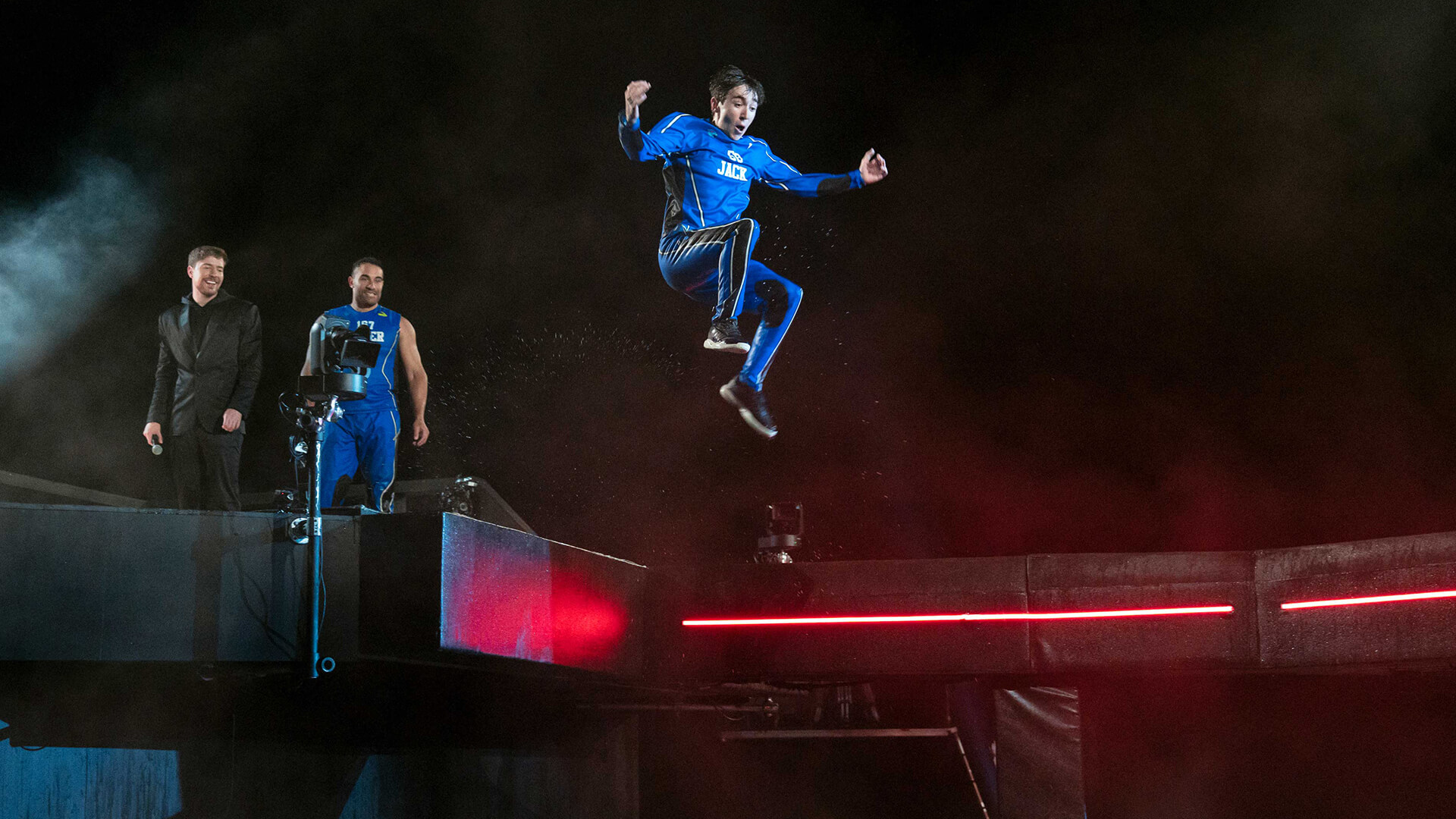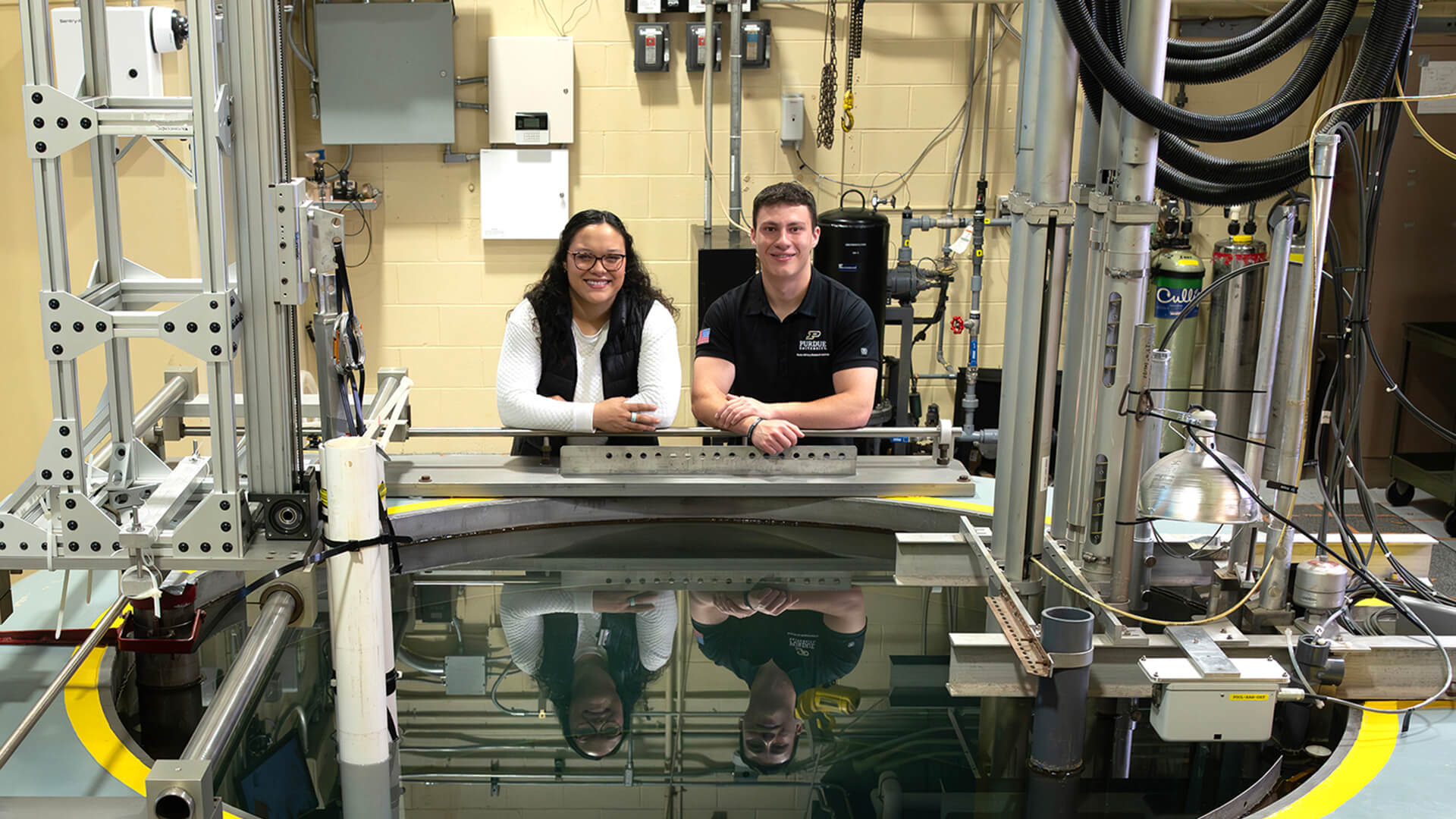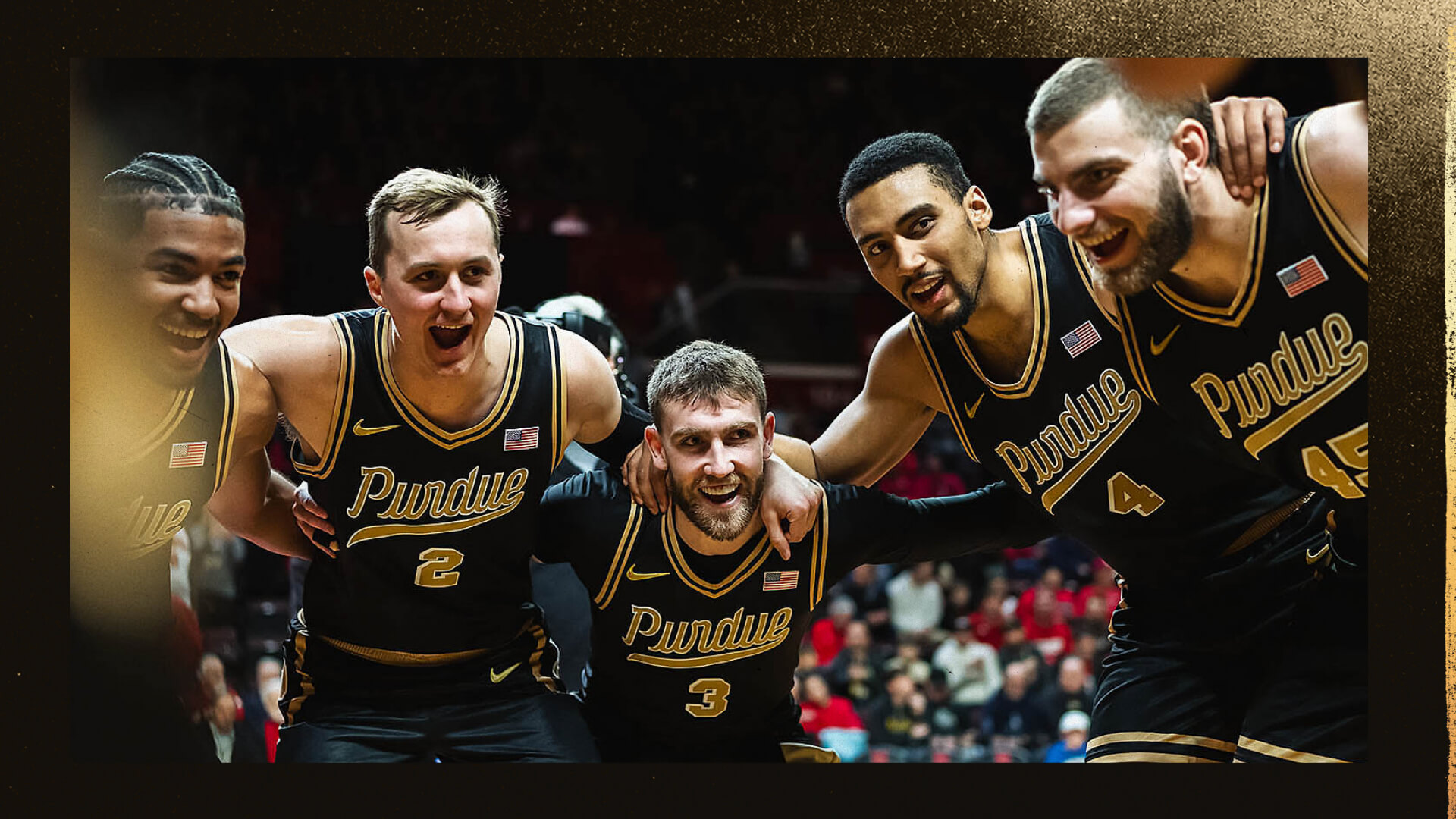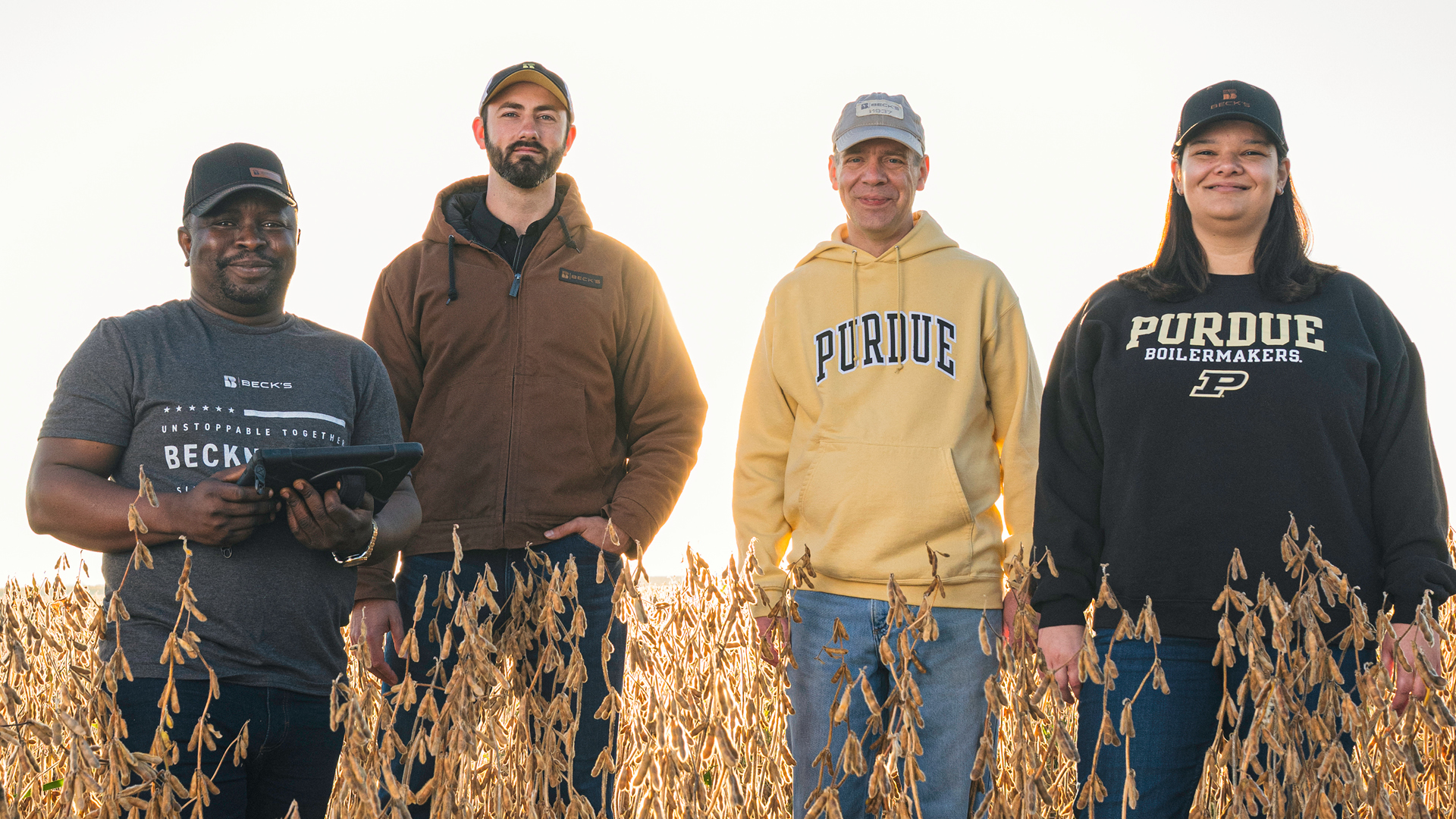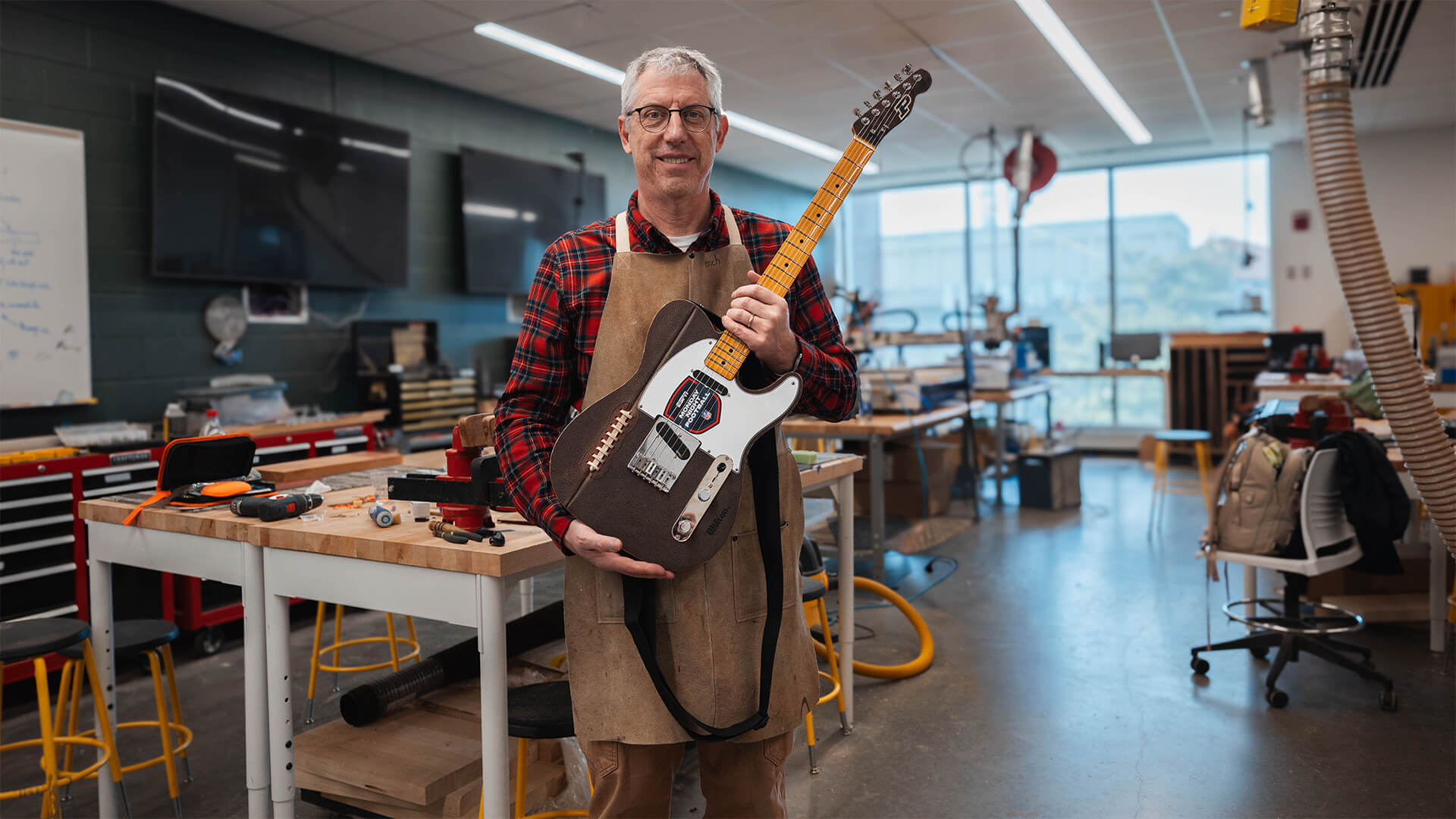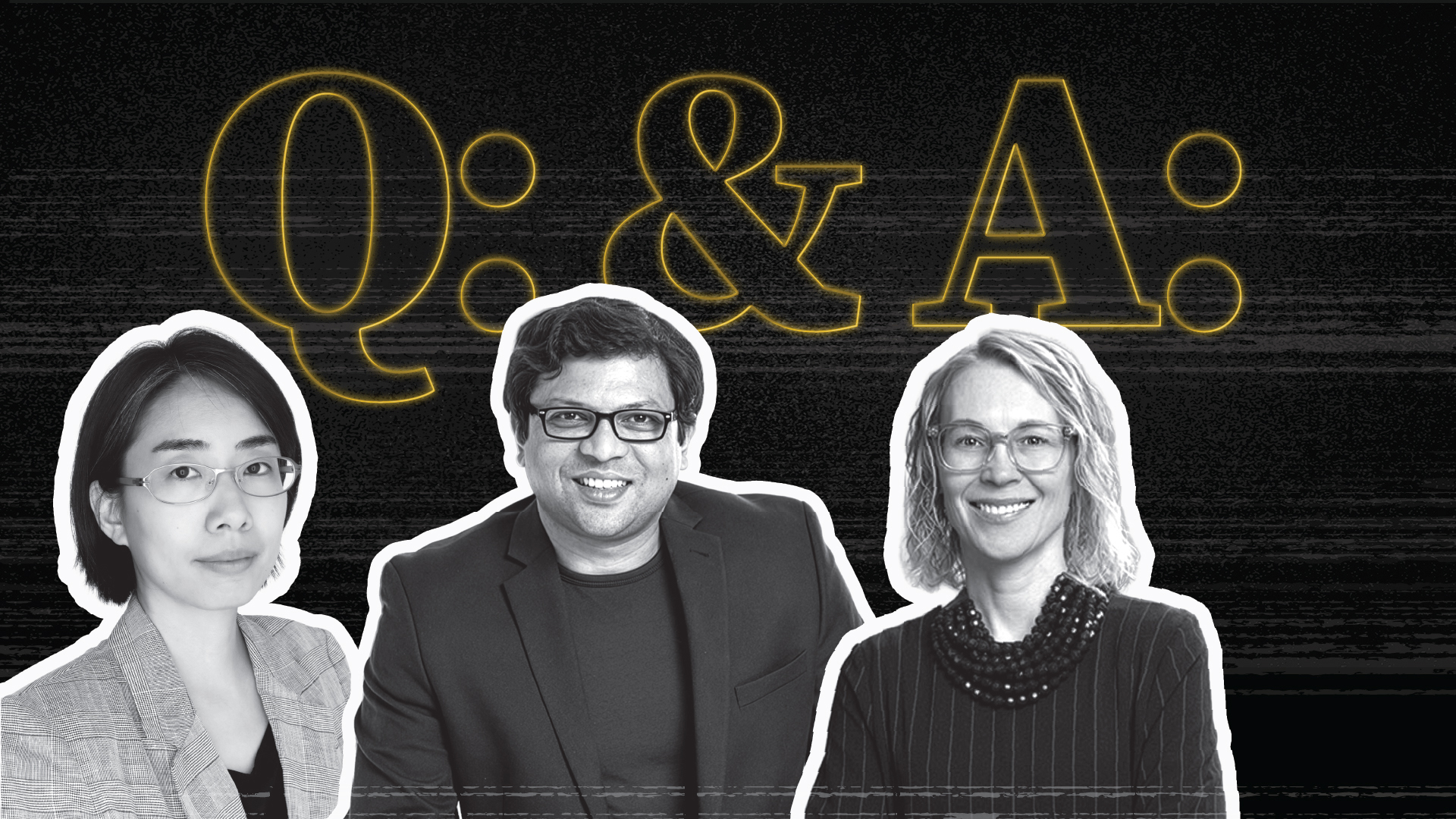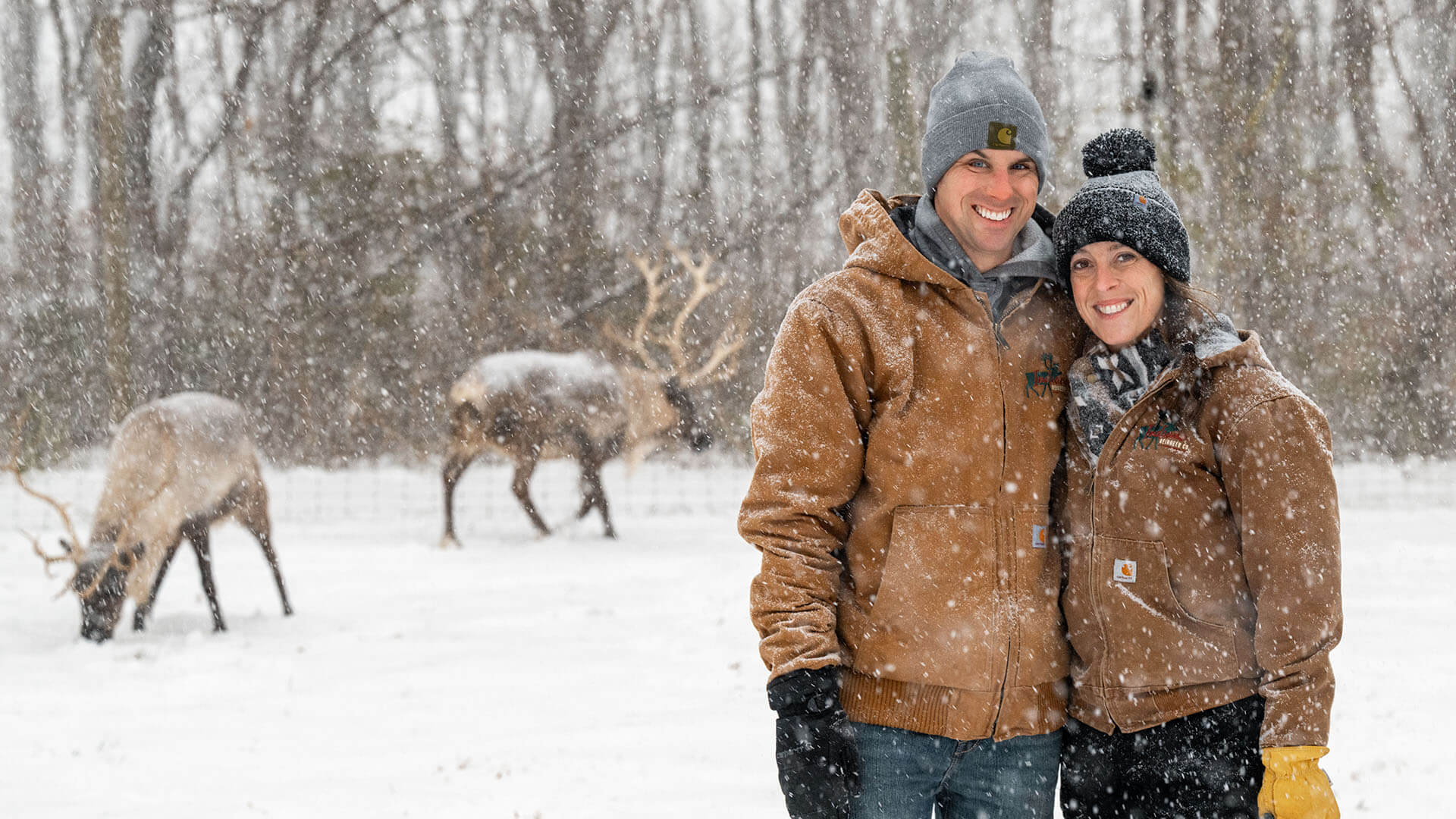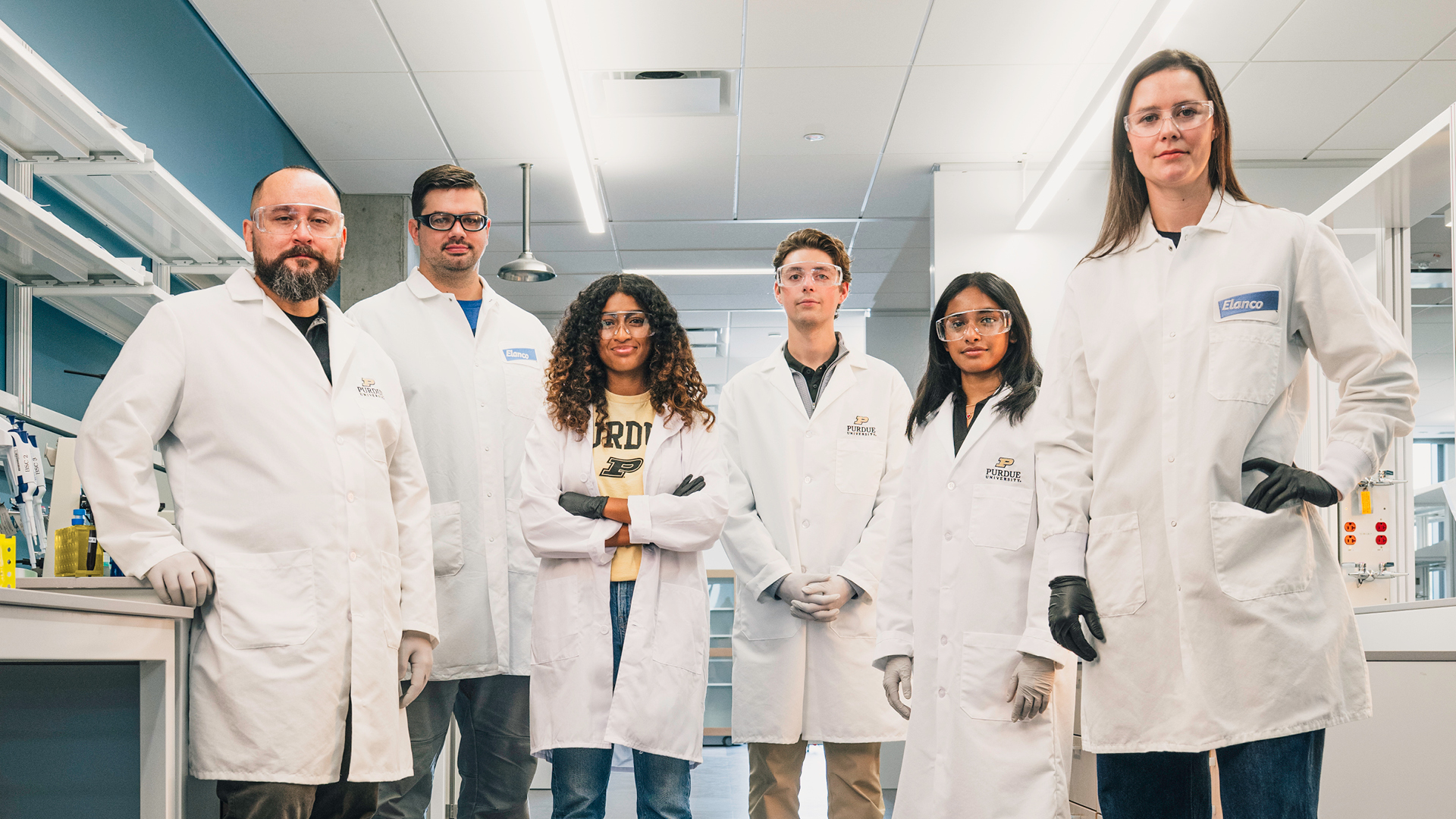Professor’s passion inspires civil engineers to build a better world
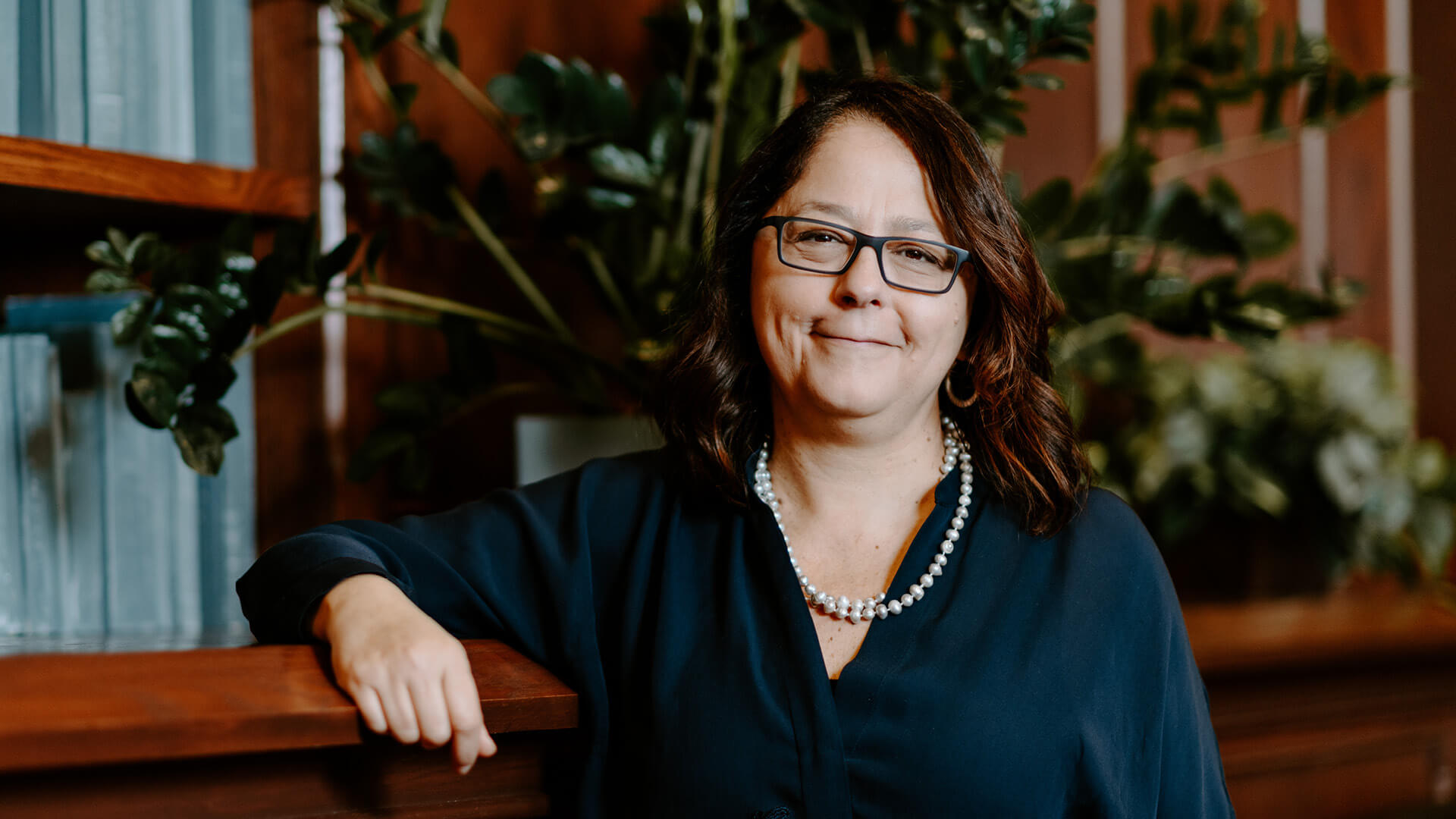
Marika Santagata focuses on ensuring each student’s experience feels individualized and that their interests are supported. (Purdue University photo/Kelsey Lefever)
Charles B. Murphy Outstanding Undergraduate Teaching Award: Marika Santagata
How can a classroom of over 100 students be made to feel more like a comfortable, conversational setting?
Marika Santagata, a professor in the Lyles School of Civil Engineering, starts by memorizing everyone’s name. Every student, every semester.
“They’re always a bit startled that I can remember,” she says. “It ties in with the way I teach. I always want to create interactions.”
The efforts to build relationships, support students’ interests and engage students in learning led to Santagata receiving the Charles B. Murphy Outstanding Undergraduate Teaching Award, the university’s highest undergraduate teaching honor.
A personalized approach
Ensuring that each student’s experience feels individualized doesn’t stop at learning names – Santagata intentionally sees to it that people feel supported. Her ways of interacting with students encourage participation and establish an environment in which students are intellectually challenged and motivated to give their best.
“I try to develop a personal relationship with students, get to know them as people, and break down barriers to communication.” she says. “They engage with me and each other – the classroom becomes a comfortable place for learning. It just works.
“I want to make every class feel worthwhile. I teach a core course for sophomores that I see as a sort of gateway for first-year engineering students as they enter civil engineering. It’s their initial step into the field, and I am of the first CE faculty they interact with. I take that responsibility seriously.”
She crosses paths with many of them again in their junior or senior year when they take the course in her area of specialty, which is geotechnical engineering. “I get to see how much they have progressed and hopefully inspire them for their entry in the profession,” she says.
Lectures and labs are only a part of Santagata’s interactions with students. She is available for continuous mentorship, whether it’s meeting during office hours for one-on-one help, focusing on career development possibilities like internships and study abroad opportunities, or involving students in research in her lab.
“I like being able to play both a role in students’ technical and personal growth,” she says. “I want to understand students, where they come from, as well as where they want to go.”
I like being able to play both a role in students’ technical and personal growth. I want to understand students, where they come from, as well as where they want to go.
Marika Santagata
Professor of civil engineering
Lyles School of Civil Engineering
An emphasis on impact
By focusing on fundamentals and connecting course materials to real-world applications, Santagata strives to help her students truly understand concepts and be ready to apply them in the profession.
She sees Purdue’s role as preparing engineers equipped with the technical skills required to tackle society’s challenges and the moral and ethical perspective to understand the broader effects of their work.
“There are conversations to be had about the effect of civil engineering on society, broadly speaking,” she says. “Students want to make a difference, and I think they can realize this goal in our field.”
Santagata sees continued opportunities to build awareness of the impact that civil engineers have on society and is actively working to incorporate discussion of ethics, equity and impact in her coursework.
“Civil engineering projects have long-lasting implications,” she says. “I’ve been trying to bring these big-picture issues into the classroom.” “Where does the road you’re building lead? Who does it serve? How do you protect people from natural hazards? As civil engineers, we have direct impact on people’s everyday lives.”
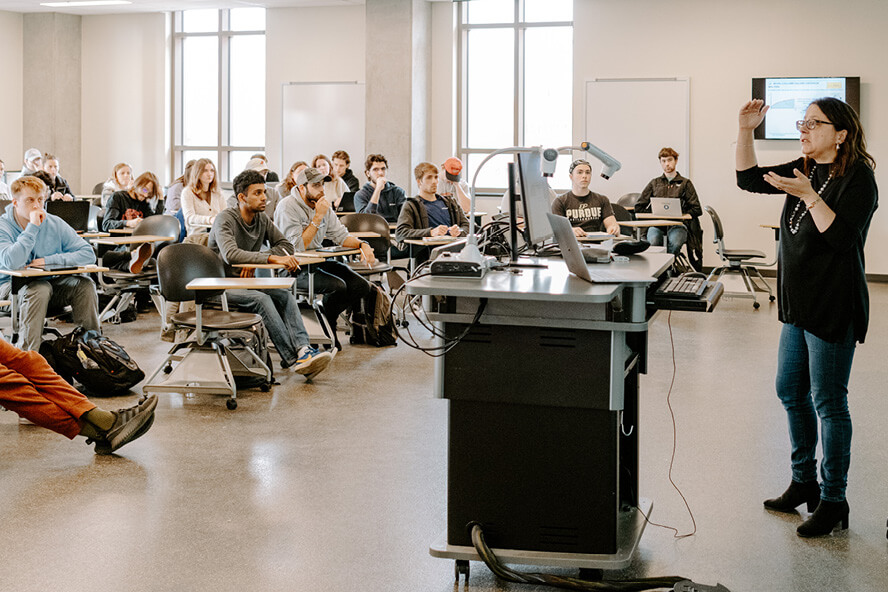
There are conversations to be had about the effect of civil engineers’ decisions on society, broadly speaking. Students want to make a difference.
Marika Santagata Professor of civil engineering
Lyles School of Civil Engineering
A calling to teach
Santagata’s enthusiasm for education stems from a strong source: her family. Her father was a civil engineering professor, and her mother and grandmother were teachers.
All three role models helped form her foundation (as well as her brother’s, who also is an engineering professor). She was born and raised in Italy and first studied engineering there. Later, she landed in the United States to pursue a doctoral degree at MIT, with the professional goal of being in academia.
“We grew up with the understanding that education is a noble job,” she says. “There’s importance and worth in dedicating your life to this profession.”
Winning the Murphy Award left Santagata at a loss for words. “I’m never speechless,” she says. “But I couldn’t say anything. It’s been a surprise, too, to see how many former students have found out that I’ve won. I’ve gotten really sweet emails from people I taught a long time ago.”
Interacting with students is a continuous timeline that starts with learning names but never truly stops. “Their success is my success,” she says. “I personally care about them.”
“My dad used to say that his biggest satisfaction in life would be for his kids to be better than him,” Santagata says. “I can say the same for my children – and the same for my students. I want them to go way beyond me.”
